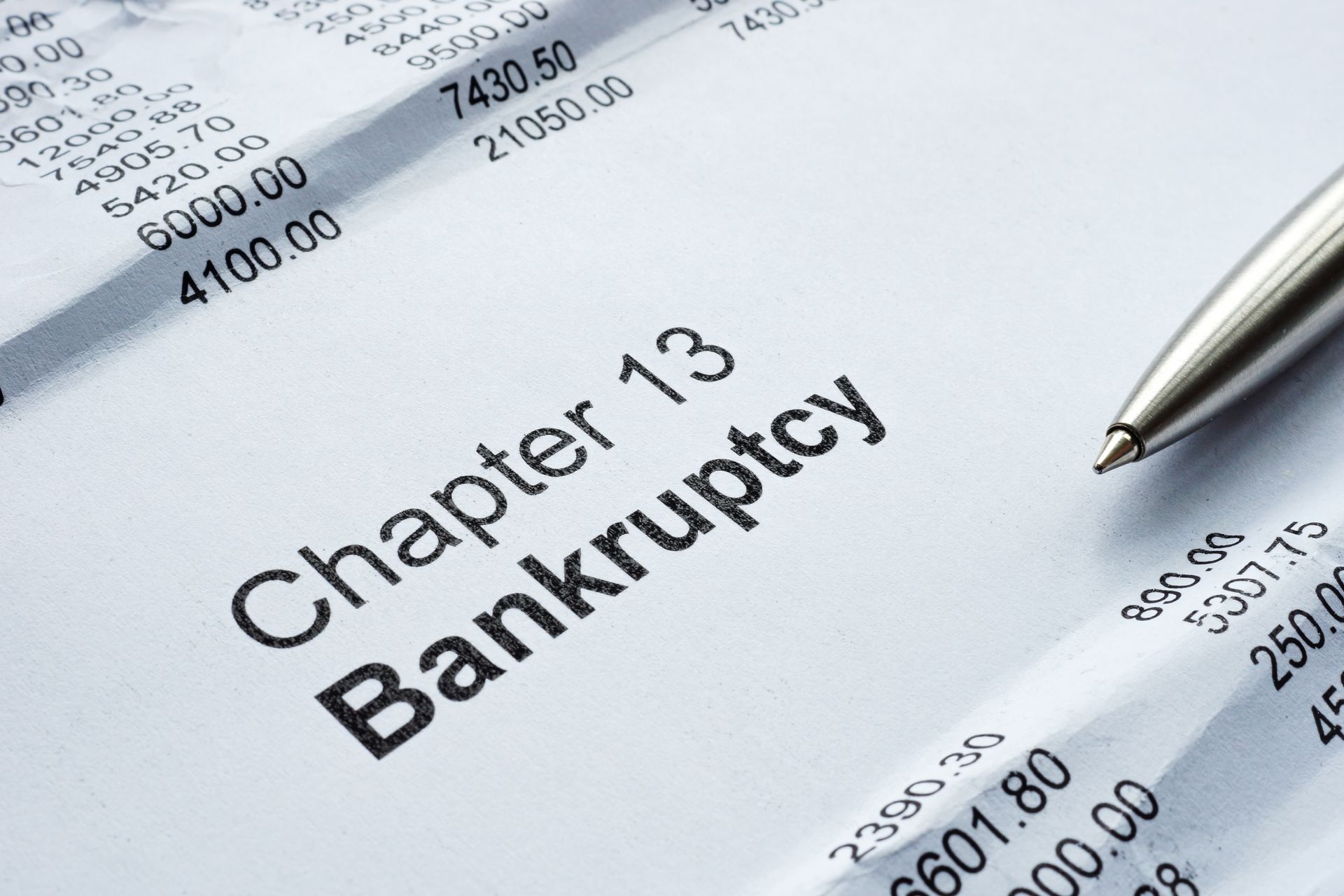Why File Chapter 11 Bankruptcy? Understanding Its Benefits and When to Use It
Why File Chapter 11 Bankruptcy?

When businesses or high-net-worth individuals face overwhelming debt, they often ask: Should I file for Chapter 11 bankruptcy? Unlike Chapter 7 (which liquidates assets) or Chapter 13 (which is designed for individuals with lower debts), Chapter 11 allows businesses and individuals to restructure their debts while continuing operations.
At J. Singer Law Group, we help businesses and individuals navigate complex financial challenges, including bankruptcy. In this guide, we’ll explain why filing for Chapter 11 bankruptcy might be the right move, its advantages, and key considerations before filing.
What is Chapter 11 Bankruptcy?
Chapter 11, also known as “reorganization bankruptcy”, allows businesses and individuals to develop a court-approved repayment plan to restructure debts while maintaining control of their assets.
- Businesses can stay open while repaying creditors.
- Debtors negotiate new repayment terms with creditors.
- Certain debts may be discharged or reduced.
Unlike Chapter 7, which requires liquidation, Chapter 11 offers a path to financial recovery without closing operations.
Who Should Consider Filing Chapter 11 Bankruptcy?
Filing for Chapter 11 may be a smart choice if you:
✔ Own a business that is struggling with debt but still has potential.
✔ Are a high-net-worth individual with debts exceeding Chapter 13 limits.
✔ Need to prevent foreclosure, lawsuits, or creditor collection actions.
✔ Want to renegotiate contracts, leases, or debt terms to make payments more manageable.
✔ Have temporary financial struggles but expect to recover.
For many, Chapter 11 is a strategic move to avoid complete financial collapse and gain time to reorganize.
Why File Chapter 11 Bankruptcy? Key Benefits
1. You Can Continue Business Operations
Unlike Chapter 7, which shuts down operations, Chapter 11 allows businesses to remain open while restructuring debt. This is crucial for companies that are experiencing short-term cash flow problems but have a viable future.
💡 Example: A struggling restaurant chain files for Chapter 11, allowing it to renegotiate supplier contracts and reduce lease costs while staying open.
2. It Stops Foreclosure, Lawsuits, and Creditor Harassment
Once a Chapter 11 case is filed, an automatic stay is triggered, halting all collection actions, including:
🚫 Foreclosures
🚫 Wage garnishments
🚫 Lawsuits
🚫 Bank levies
This buys time to develop a restructuring plan without the pressure of lawsuits or asset seizures.
3. Debts Can Be Reduced or Modified
A court-approved repayment plan may allow debtors to:
- Lower interest rates on existing loans.
- Reduce principal balances on secured debts.
- Extend repayment periods for better cash flow management.
This can make repayment more affordable and realistic over time.
4. Business Owners Can Renegotiate Leases and Contracts
Chapter 11 allows businesses to reject, renegotiate, or modify burdensome contracts and leases.
- Retail stores can renegotiate leases to reduce rent.
- Manufacturers can modify supply contracts for better pricing.
- Service providers can restructure agreements with vendors.
This helps businesses cut costs and become profitable again.
5. Personal and Business Assets Are Protected
For business owners, Chapter 11 helps protect personal assets from being liquidated (unlike Chapter 7, which requires selling assets to pay debts).
Additionally, businesses can protect intellectual property, real estate, and other valuable assets while reorganizing.
6. It Allows High-Net-Worth Individuals to Restructure Debt
Unlike Chapter 13, which has debt limits, Chapter 11 is ideal for individuals with complex finances or significant liabilities.
Who benefits?
- Real estate investors
- Entrepreneurs with multiple businesses
- Doctors, lawyers, and professionals with high debt levels
With Chapter 11, individuals can reduce loan balances, restructure mortgage debt, and protect assets while repaying creditors over time.
7. Creditors Must Follow the Court’s Plan
Creditors cannot force immediate payment once the reorganization plan is in place. Instead, they must follow the court-approved terms, which may reduce what they are owed.
This levels the playing field for debtors, preventing creditors from taking aggressive action.
Challenges of Filing Chapter 11 Bankruptcy
🚩 Expensive Legal Fees & Court Costs – Chapter 11 is more complex than other bankruptcies, requiring significant legal work.
🚩 Lengthy Process – Cases often take 6 months to 2 years to complete.
🚩 Credit Impact – Bankruptcy remains on credit reports for up to 10 years, affecting financing opportunities.
🚩 Court & Creditor Approval Required – The reorganization plan must be approved by creditors and the court.
Despite these challenges, successful Chapter 11 filings can help businesses and individuals regain financial stability.
Small Business Chapter 11: Subchapter V – A Faster, Cheaper Option
The Subchapter V provision under Chapter 11 simplifies bankruptcy for small businesses by:
✔ Reducing legal fees
✔ Eliminating creditor committees
✔ Expediting court approval
Businesses with less than $7.5 million in debt can restructure more quickly under Subchapter V, making Chapter 11 more accessible for small companies.
How to File for Chapter 11 Bankruptcy
Step 1: Consult a Bankruptcy Attorney
An experienced bankruptcy lawyer will evaluate your case and recommend the best path forward.
Step 2: File a Chapter 11 Petition
Filing initiates the automatic stay, which stops all collection actions.
Step 3: Propose a Reorganization Plan
Debtors must submit a detailed repayment plan that outlines:
- How debts will be paid
- Any planned cost reductions
- Business restructuring efforts
Step 4: Get Creditor & Court Approval
Creditors vote on the plan, and at least one impaired creditor class must approve it. If rejected, a modified plan can be proposed.
Step 5: Implement the Plan & Rebuild Financial Stability
Once approved, the debtor follows the restructuring plan, making scheduled payments while maintaining control of assets.
Alternatives to Chapter 11 Bankruptcy
If Chapter 11 doesn’t fit your needs, consider:
- Debt Settlement – Negotiating directly with creditors to reduce balances.
- Chapter 7 Bankruptcy – Liquidation for businesses that cannot recover.
- Chapter 13 Bankruptcy – Better for individuals with structured repayment plans.
- Business Sale or Merger – Selling assets or merging with another company.
An attorney can help evaluate which option is best for your situation.
Conclusion
Filing for Chapter 11 bankruptcy can be a powerful financial tool for businesses and individuals struggling with debt. By allowing debt restructuring, contract renegotiation, and continued operations, Chapter 11 provides a path toward financial recovery.
If you’re considering filing for Chapter 11 in New York, our team at J. Singer Law Group can provide expert legal guidance. Contact us today to discuss your options!
FAQs
1. How long does Chapter 11 bankruptcy take?
The process typically lasts 6 months to 2 years, depending on case complexity.
2. Will Chapter 11 wipe out all my debts?
Not necessarily. Chapter 11 restructures debt, but some may still need to be repaid under new terms.
3. Can a small business file for Chapter 11?
Yes! Subchapter V of Chapter 11 makes it faster and more affordable for small businesses.
4. Will filing Chapter 11 affect my credit?
Yes, it will appear on your credit report for 10 years, but businesses and individuals can rebuild credit over time.
5. Can creditors reject my Chapter 11 plan?
Yes, but if at least one class of impaired creditors approves it, the court can confirm the plan.











